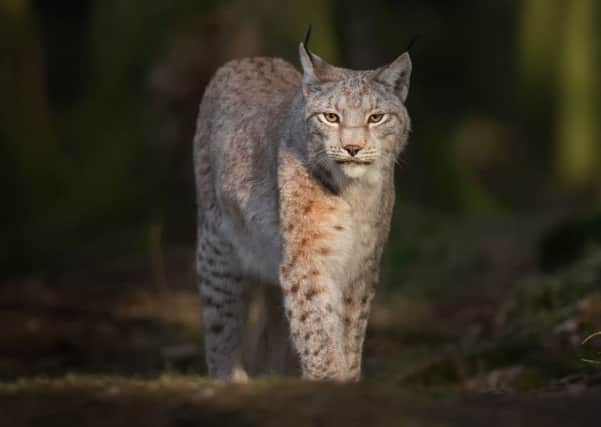Landowners back plan to reintroduce lynx along Scotland-England border


The Lynx UK Trust wants to return six of the predators to Kielder Forest in Northumberland, some 1,300 years after the predator was wiped out through hunting and deforestation.
Its plans were submitted to conservation body Natural England more than a year ago and have yet to be approved, with sheep farmers raising fears that the lynx would attack and kill livestock.
Advertisement
Hide AdAdvertisement
Hide AdBut the Trust has now announced that all of the landowners responsible for the 700sq km area where the animals could be introduced have given their backing to the proposal.
If approved, the predators would be released in Kielder for a trial lasting five years.
If successful, more lynx could be reintroduced to other parts of the UK such as the Highlands.
Dr Paul O’Donoghue, the Trust’s chief scientific adviser, said around a quarter of the proposed reintroduction site was on the Scottish side of the Border.
“The lynx are as likely to walk on Scottish ground as English ground,” he said. “Some of the landowners we’ve approached own land on both sides of the Border.”
Supporters of lynx rewilding argue that the predators would help to control deer numbers, reducing their damaging impact on forestry and other wildlife and helping smaller species.
But the National Farmers’ Union (NFU) is strongly opposed to the idea, pointing out that the lynx would be likely to attack sheep and other livestock.
In April, a book on lynx by Scottish ecologist Dr David Hetherington cited figures showing Switzerland’s 250 lynx caused livestock losses of 20 to 50 animals each year.
Advertisement
Hide AdAdvertisement
Hide AdTo counteract this, the Lynx Trust has offered to arrange insurance for British sheep farmers against lynx attacks.
“This will be an exceptionally rigorous, scientifically-led reintroduction trial using cutting edge technology to monitor these cats in stunning detail,” Dr O’Donoghue added.
“Everything is in place to deliver a world class project that will breathe life into Britain’s dying forest ecosystems.”
However, the Trust’s claim that all local landowners were on board with its plan was disputed by the National Sheep Association, which represents sheep farmers across the UK.
“The area the Trust is talking about is clearly a large proportion of Kielder and the majority of farmers we’ve spoken to there are opposed to the release,” said chief executive Phil Stocker.”
A Scottish Government spokesman said: “The Scottish Government has no plans to reintroduce lynx to Scotland.
“Any private organisation wishing to release lynx in Scotland would need a licence from Scottish Natural Heritage (SNH) and we are not aware of any such application.”